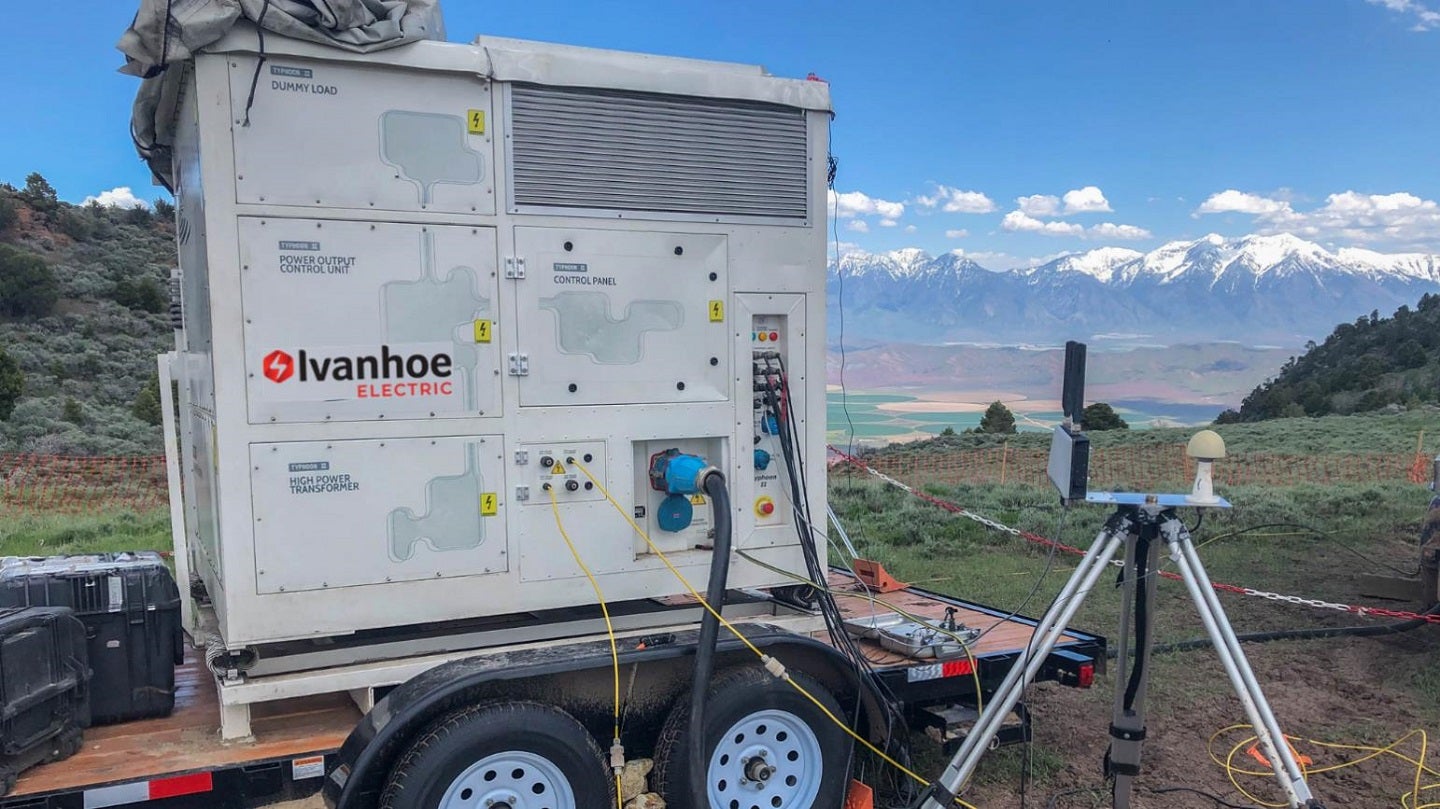
Ivanhoe Electric has formally created a joint venture (JV) with Saudi miner Ma’aden to explore gold, copper, silver and electric metals in the country.
The new JV is named Ma’aden Ivanhoe Electric Exploration and Development.
In addition, Ma’aden has closed the purchase of a 9.9% stake in Ivanhoe Electric for $127.1m.
The transaction involved the issuance of nearly 10.2 million Ivanhoe Electric shares, at $12.38 apiece.
Ma’aden agreed to a five-year standstill to limit its stake to a maximum of 19.9%, which is subject to some exceptions.
The company has Sofia Bianchi as its nominee to Ivanhoe Electric’s board, expanding the board membership count to nine.
Ivanhoe plans to invest $66m of Ma’aden’s proceeds into the new company.
Ivanhoe will also use the remaining $61.1m to advance its mineral projects in the US and for general and corporate purposes and working capital needs.
The new JV will finance exploration activities and buy three Typhoon machines from Ivanhoe Electric.
These machines will be used for exploring nearly 48,500km² of unexplored lands in Arabian Shield that the Saudi company has exclusively made available to the JV.
Ivanhoe Electric executive chairman Robert Friedland said: “Through the formation of this important joint venture with our partner, Ma’aden, we will begin the most extensive exploration program for metals ever conducted in the Kingdom of Saudi Arabia.
“The Arabian Shield is an area rich in mineral potential, but considerably underexplored for metals. With our proprietary and powerful Typhoon geophysical survey technology and the data analysis provided by our 94%-owned subsidiary, Computational Geosciences, we aim to uncover new discoveries of critical metals in Saudi Arabia.”
Ivanhoe Electric’s Typhoon works with an electrical output of up to 200 amps and 10,000V.
A transmitter generates a signal with a high signal-to-noise ratio. Typhoons can transmit both induced polarisation and electromagnetic signals, which can be used for searching a variety of mineral deposit types.
The Typhoon machines are expected to arrive in the country next month and surveying programmes could begin in September.
The machines will be used for surveying geophysical anomalies, which could be indicative of sulfide mineral deposits such as copper, nickel, gold and silver.
A technical committee with members from the two companies is working to prioritise targets for the surveys.




